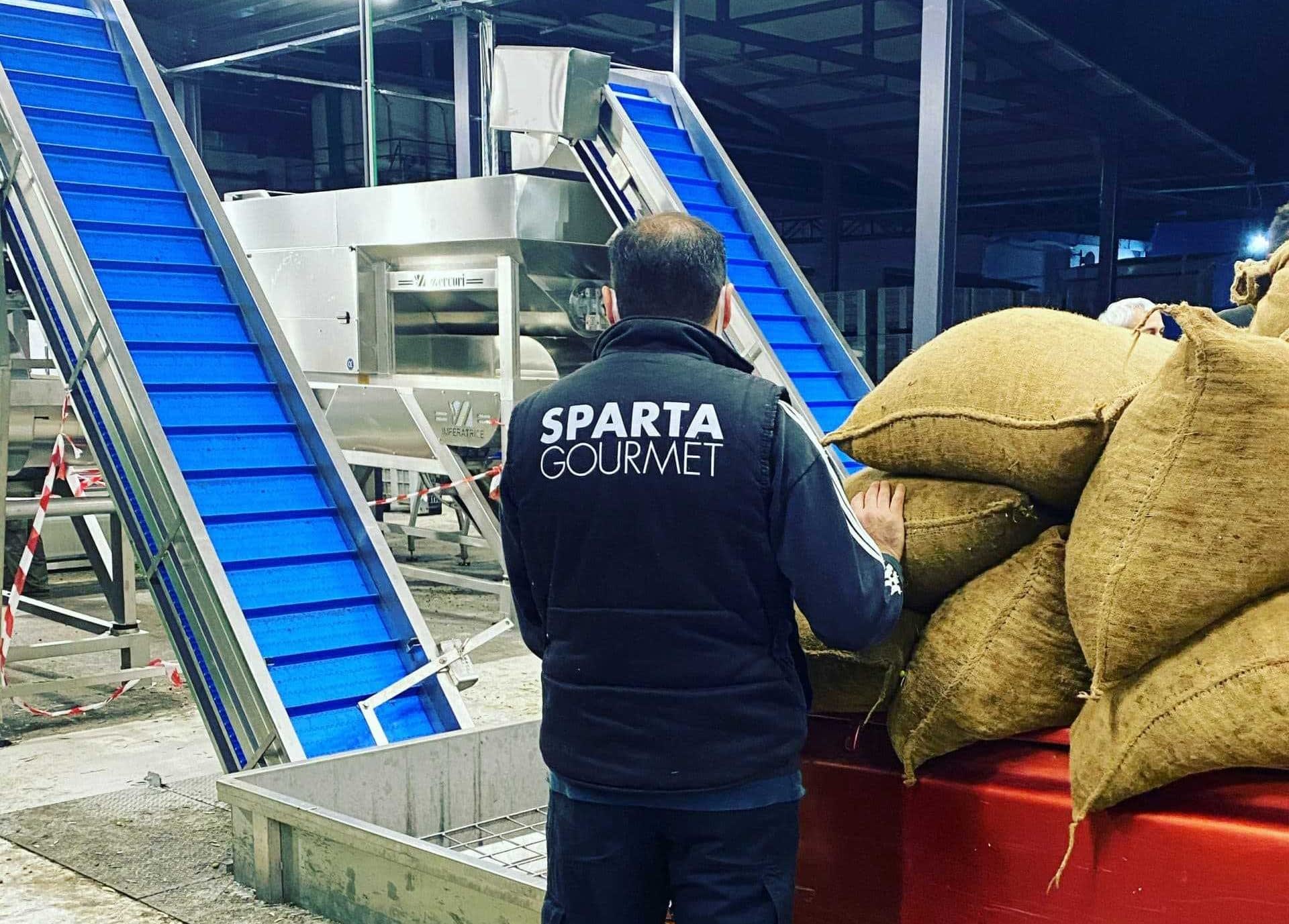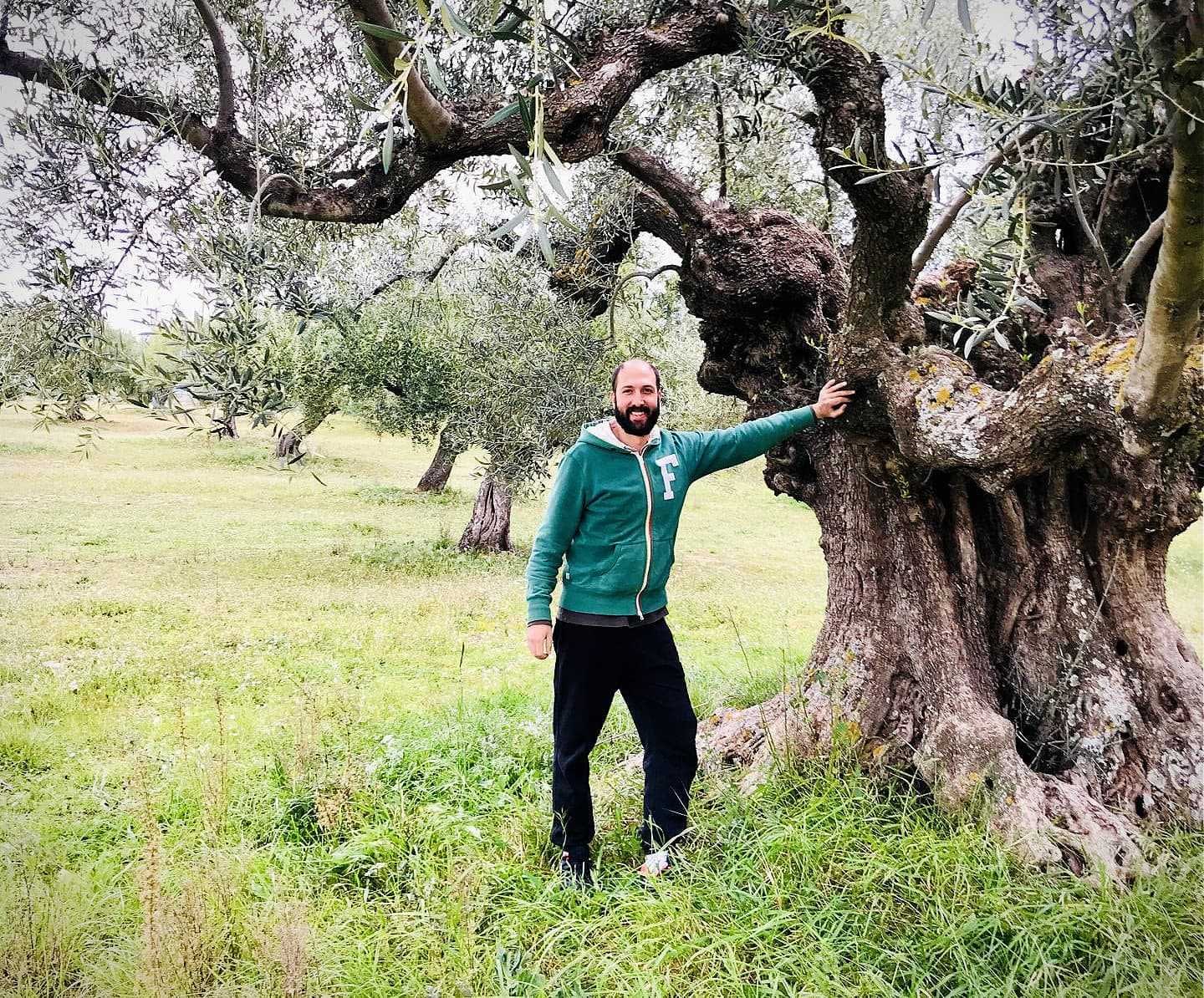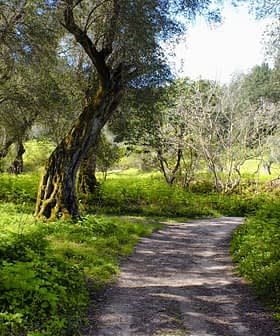New E.U. Ag Policy Could Benefit Greek Olive Growers If Requirements Are Met
Funding for Greek farmers is expected to exceed €20 billion under the new subsidy program. However, some worry that small olive growers will miss out.
 S.A. Andriotis
S.A. AndriotisThe latest reform of the Common Agricultural Policy (CAP), the European Union’s farming subsidy program, has been finalized after a provisional agreement was reached between the European Parliament and the E.U. governments. The new rules will apply from 2023 until the end of 2027.
The next CAP includes funding for farmers and rural development totaling €387 billion, almost a third of the E.U.’s entire budget.
It is too early to tell (what the impacts of the new CAP will be), and the information released by the ministry of agriculture is still general and vague.
Greece will receive €19.3 billion under the new scheme, an amount similar to the funds provided by the CAP currently in operation. The financial backing of the country’s farmers remained the same despite an E.U.-wide 10 percent reduction in funds allocated for payments to beneficiaries with the new policy.
“We have achieved the most ambitious political reform of the Common Agricultural Policy since the 1990s,” said Spilios Livanos, the Greek Minister of Rural Development and Food. “We created a proper European framework for the safety, adequacy and sustainability of our agri-food systems.
See Also:Croatian Producers Question Minister Over Common Agricultural Policy“It is a fair, green, social and ultimately more sustainable CAP,” the minister added. “Greece will retain the same funding of the current CAP. It is a big opportunity for our country to transform its rural economy, achieve the much-coveted peripheral development and change its whole productive model.”
An additional €2 billion from the European Recovery and Resilience Fund, which was targeted to support the recovery from the Covid-19 pandemic, is also expected to be directed to the agricultural sector of the country over the next few years.
All payments will be tied to some minimum environmental requirements, such as that at least three percent of arable land is set aside by farmers to let nature thrive, or farmers rotate crops every other year for soil regeneration.
The E.U.‘s new farm policy also stipulates that only “active farmers” can benefit from the subsidies. Each member state must provide a definition for its own active farmers according to some generally accepted terms, such as that farming activities account for at least a specific percentage of the farmers’ income, but also has the flexibility to add its own criteria in the definition.

Sparta Gourmet
The Greek officials clarified that only the farmers who really produce will be eligible to receive direct income support under the new CAP.
“The new targeting of subsidies in conjunction with the definition of the active farmers provide us with the ability to support those who produce and operate in the value chain without applying illicit practices,” Yiannis Economou, the assistant minister of rural development and food, said during a consultation in Chania.
The exact criteria for active farmers in Greece under the next CAP have yet to be determined by the ministry.
The olive oil sector of the country should also be prepared for some changes that are meant to better support olive farmers when the 2023 – 2027 CAP comes into force.
Funds are expected to be disbursed more quickly and easily than before. However, uncertainty exists in the sector about the CAP reform and its real impact on the industry.
“It is too early to tell, and the information released by the ministry of agriculture is still general and vague,” Nikos Michelakis, the scientific advisor of the association of the olive oil making municipalities of Crete (SEDIK), told Olive Oil Times. “It mentions goals and strategies without describing how these will be realized.”
“In any case, there is no scientific, environmental or agronomic evidence to justify the equation of olive groves, an investment of high expenditure which requires the labor of generations, with pastures and arable land,” he added.
See Also:New CAP Provides Plenty of Opportunities for Italian Olive GrowersMichelakis also had second thoughts about the planned redistribution of the income support to benefit the smaller farms at the expense of big farms and companies the new CAP espouses.
“The ‘redistributive payments’ of the new CAP will supposedly favor small farmers,” he said. “However, if the reports in the agricultural press are accurate, all beneficiaries are set for a 10 percent cut in direct payments in order to support the smaller farmers, who will likely get around €40 per acre.”
“So, small-sized olive growers will not actually benefit but instead suffer some income loss,” Michelakis added. “No reduction in funding should be imposed on small farmers.”
Table olives, on the other hand, will be added to the list of agricultural products eligible for applying a private storage mechanism under the new CAP. The aim is to provide the means to regulate supply and demand and recuperate market prices when required.

Monogram Olive Oil
Private storage is occasionally used by the European Commission to stabilize the olive oil market (among other products) in cases of imbalances, however with dubious results.
Another important aspect of the new CAP is to be able to create an attractive working environment for young people.
Young European farmers were not particularly lured by the current CAP to enter the agricultural sector, research conducted for the 2014 to 2020 period on behalf of the European Union found.
The research concluded that the ‘generation renewal’ measures of the CAP, specifically targeted to safely transfer farms from one generation to another, are not adequate by themselves to tempt more young people to become farmers. The main problems for young farmers remain the access to funds and land.
In this context, Livanos asserted that the new E.U. policy should profoundly put forward its merits rather than its penalizing mechanisms.
“[The new CAP should be] a lever for young people to enter agriculture, not a deterrent,” he said during a meeting of the E.U.‘s ministers of agriculture in Lisbon. “[It should] be an inspiration to farmers, not a fear of sanctions.”
A requirement of the new CAP is that every member state implements a strategic plan to outline how rural policies will be applied and funds will be allocated according to its needs and special national characteristics. All plans will be vetted by the European Commission before any funds are disbursed.
Greece has already started putting together its strategic plan after concluding the consultation procedures with the stakeholders, such as farmers and livestock breeders.
“We continue our plan to develop a ‘partnership’ and the maximum possible consultation on the new CAP,” the Greek ministry of agriculture said in a press release.
The consultation is an opportunity for an open public dialogue, the press release stated, “in order to diagnose, discuss, and pinpoint all the issues, the problems and the challenges of the Greek agricultural sector, to shape the proper suggestions and search for the best solutions in designing the strategic plan of the new CAP.”
The CAP strategic plan devised by Greece is expected to be ready for public consultation in October and finalized by the end of 2021. Then it will be submitted to the European Commission for approval.








